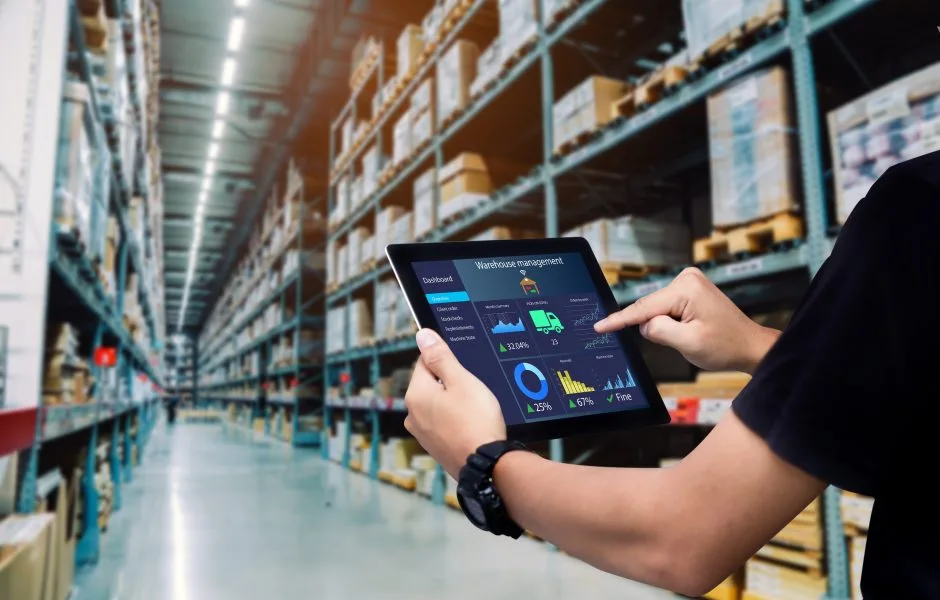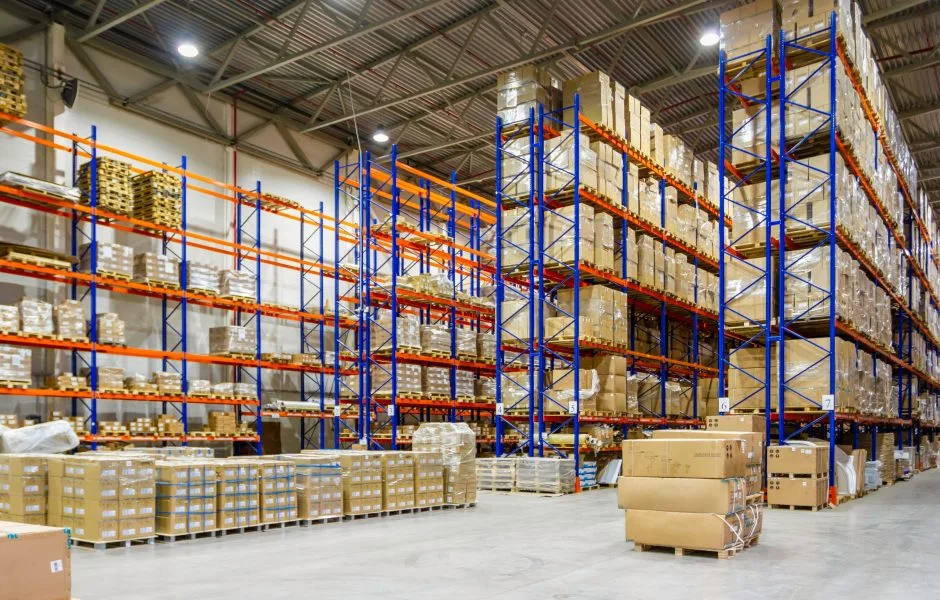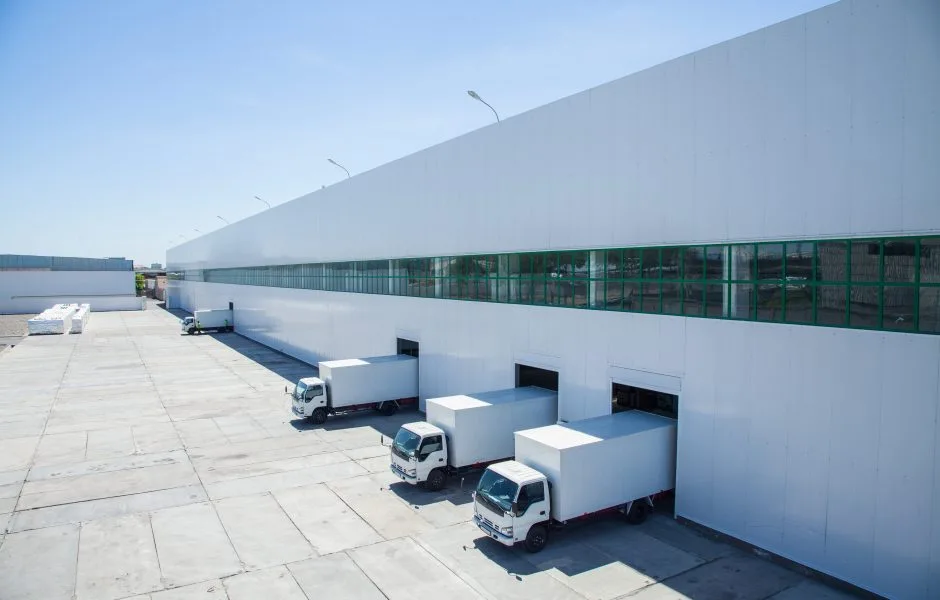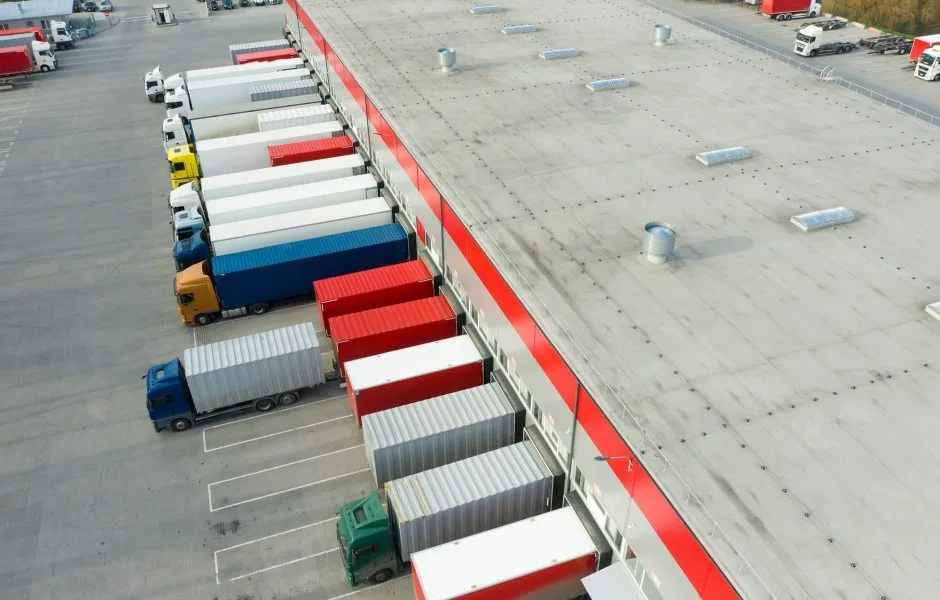What Is A 3PL? Let’s Define Third-Party Logistics
Third-Party Logistics providers, commonly known as 3PLs, have emerged as powerful catalysts of change.
A third-party logistics (3PL) provider is a warehousing, distribution, and fulfillment partner offering services designed to help growing retailers store and transport their inventories. 3PLs come in many shapes and sizes, but they often offer specialized services and expertise. By offering specialized services and expertise, 3PLs can help transform the way businesses operate by delivering efficiency, flexibility, and growth.
Keep reading to dive deep into all things 3PL—from the definition to common services, processes, resources, and frequently asked questions.

In this Article
What Is the Definition of a 3PL?
What Do 3PLs Actually Do?
Why Would a Retailer Need a 3PL?
How Do 3PLs Operate?
Who Doesn’t Use a 3PL?
The Benefits of Working with a 3PL
How to Evaluate a Good 3PL
3PL FAQs
What Is the Definition of a 3PL?
A 3PL, or third-party logistics provider, is an outsourced supply chain partner that helps organizations manage and improve their logistics operations. Sometimes 3PL companies are described by different names, like fulfillment and distribution companies, fulfillment warehouses, or fulfillment centers.
In the end, a 3PL’s goal should be to support a retailer’s warehousing, distribution, and fulfillment needs to improve logistics performance, reduce costs, and meet customers’ high expectations. By working with 3PL providers, businesses can focus on their core competencies while benefiting from the specialized knowledge, infrastructure, and technology offered by these external logistics partners.
What Do 3PLs Actually Do?
3PLs can offer a portfolio of logistics solutions like transportation, order fulfillment, inventory management, warehouse storage, returns services, and more. But at minimum, most 3PLs manage and store inventories, distribute products to retail or other locations, and fulfill customers’ online orders. This lets retailers and brands place inventory strategically to best meet their business needs, while creating the fast, easy delivery experience customers expect. Often, 3PLs provide the logistics technologies needed to manage inventories and fulfill orders while providing tracking and reporting key performance indicators (KPIs) back to their customers.

Why Would a Retailer Need a 3PL?
Retailers can manage their logistics in-house, and that often works for emerging brands. But managing logistics operations becomes more complex as companies grow. Distribution and fulfillment operations are highly resource intensive, require capital to scale, and can distract brands from focusing on core competencies like product development. Plus, customers expect seamless experiences and fast delivery, which many in-house fulfillment models cannot achieve consistently.
As brands grow, rising operational complexity may require that they seek a 3PL partner. Though it varies somewhat by revenue size, a Radial retailer survey from March 2025 indicates that more than half of all surveyed brands commonly outsource fulfillment once they grow to $50M+ in revenue.
3PLs can help across a variety of strategies and business models:
- eCommerce Retailers: eCommerce retailers typically have unique logistics requirements, including managing high online order volumes, multiple shipping destinations, and handling customer returns. 3PLs that specialize in eCommerce fulfillment offer solutions to optimize inventory management, streamline order fulfillment, and enhance customer satisfaction.
- Seasonal Businesses: Some retailers and brands experience seasonal demand patterns. Often, this means sales spike during the holiday shopping season, but seasonal peaks can also occur for other reasons. For example, candy sales surge around Valentine’s Day and Halloween in the US. 3PLs manage sudden spikes in order volumes, ensure timely deliveries. And they provide additional resources during peak periods, helping businesses scale up and down as needed without dealing with operational complications or added costs.
- Global Organizations: Companies that engage in international trade and global supply chains often face complex logistics challenges from customs regulations, tariff policy changes, and international shipping. 3PLs with expertise in international logistics can navigate these complexities and ensure efficient cross-border operations and compliance with international trade requirements.
- Brands Expanding into New Markets: When businesses expand into new markets, they may lack local infrastructure, networks, and market knowledge. Partnering with a 3PL that has an established presence in a target market can help businesses penetrate new markets quickly, leveraging the provider’s existing resources and local expertise.
- Businesses Seeking Cost Savings: 3PLs can help businesses achieve logistics cost savings by optimizing operations, negotiating favorable shipping rates, and leveraging economies of scale. By outsourcing fulfillment functions to 3PL providers, businesses can avoid investments in warehouse facilities, transportation fleets, and technology systems.

How Do 3PLs Operate?
3PLs offer a variety of services, but they typically start by managing warehouse facilities where their customers’ products are stored and shipped. This eliminates the need for retailers to maintain their own warehousing operations. They also manage a trained team able to follow standard operating procedures and protocols.
3PLs can also offer:
- eCommerce Platform Integrations: 3PLs can offer robust technology stacks designed to quickly and seamlessly integrate order fulfillment with leading eCommerce platforms like Shopify, Adobe Commerce, NetSuite, and Bigcommerce, as well as marketplaces like Amazon and Walmart. They can also help modern brands integrate with emerging platforms and marketplaces, like TikTok Shop.
- Inventory Management: 3PLs often offer sophisticated inventory management systems to efficiently track and manage customers’ inventories. These systems provide real-time visibility into stock levels, enable accurate forecasting, and help prevent stockouts or overstock situations. This ensures optimal inventory control and helps businesses meet customer demand effectively.
- Picking and Packing: 3PLs offer picking and packing services designed to accurately and efficiently retrieve and pack orders for shipping to customers. This process includes quality control and documentation to accurately track inventory levels and deliver the reliability customers expect.
- Order Processing and Tracking: 3PLs manage order processing and provide tracking information to both the retailer and the waiting customer. They manage order integration between eCommerce platforms or marketplaces and their own systems. Customers can track their shipments, and businesses can monitor the status of orders, improving transparency and customer service.
- Shipping and Delivery: 3PLs have established transportation relationships and services, which means they can negotiate competitive rates with shipping carriers. They can also optimize shipping routes and methods, ensuring faster and more reliable delivery to customers. This helps improve customer satisfaction and reduces shipping-related challenges for retailers and eCommerce brands.
- Returns Management: 3PLs offer returns management services that include processing returned items, inspecting their condition, and either restocking or disposing of them based on specific instructions from their customers. Plus, they can integrate with leading returns management partners like Loop or Happy Returns. Efficient returns management helps maintain customer satisfaction and enables businesses to handle the complexities of the reverse logistics process effectively.
- Value-Added Services: Some 3PLs can offer additional services designed to enhance customers’ experiences. This can include special packaging, labeling, kitting, assembly, or product customization.
Who Doesn’t Use a 3PL?
Some retailers may choose to manage their own fulfillment in-house instead of working with a 3PL. They will develop the facilities, operations, and processes needed for warehousing, inventory management, order processing, picking, packing, kitting or gift wrapping, shipping, and returns. The retailer maintains its own fulfillment centers or warehouses to store inventory, and the entire fulfillment process is managed by their own staff.
In-house fulfillment can provide brands with greater control over their fulfillment process, but it requires significant infrastructure, resources, and expertise to effectively manage order fulfillment operations. Many modern brands choose to outsource fulfillment as they grow to avoid the scaling challenges created by in-house fulfillment.

The Benefits of Working with a 3PL
3PLs offer retailers and brands a variety of benefits—from outsourced operations to enhanced flexibility and cost savings.
Streamlined Operations and Cost Savings
One advantage of partnering with a 3PL: Retailers can streamline their operations and create cost savings. 3PLs offer dedicated warehouse infrastructure, resources, and operational experience to reduce overall costs and manage supply chains.
By outsourcing functions like warehousing, transportation, inventory management, order fulfillment, shipping, and returns to a specialized provider, businesses can tap into economies of scale, benefit from established networks, and access cutting-edge technology and infrastructure without the need for substantial upfront investments. Companies can then focus on their own core competencies, leaving the complexities of logistics management to the experts.
Flexibility and Scalability
3PLs offer flexibility and scalability to growing retailers and brands. As these companies evolve, their logistics needs will change. 3PLs handle fluctuations in demand, seasonal spikes, and sudden supply chain shifts. Plus, with their pre-existing networks and resources, they can rapidly adapt to change and scale operations up or down as needed. That creates a competitive advantage. Now retailers can respond quickly to market dynamics and customer demands—all while maintaining high levels of efficiency and cost-effectiveness.
Enhanced Supply Chain Visibility and Analytics
It’s vital that modern brands have access to the data and analytics necessary to manage their supply chains, and 3PLs can provide the technology, advanced tracking, and robust reporting required for the job. This transparency leads to better decision-making, identification of bottlenecks or inefficiencies, and opportunities for continuous improvement.
Risk Mitigation and Expertise
Supply chains are complex, and uncertainty is at an all-time high. 3PLs mitigate risks and ensure compliance with regulations and industry best practices. They can bring extensive industry knowledge, regulatory expertise, and risk management protocols to brands as well. By leveraging their expertise, businesses can minimize risks, improve compliance, and build resilience within their supply chains.

How to Evaluate a Good 3PL
Retailers and brands should consider a variety of factors when evaluating 3PLs. Here are some important things to look for:
- 3PL Expertise and Industry Experience: Assess the 3PL provider’s expertise and experience in your specific industry or niche. How many years have they been in operation? What are their core competencies? Look for their track record of successfully serving businesses similar to yours. An experienced 3PL will understand the unique logistics requirements and challenges of your industry.
- 3PL Range of Services: Evaluate the range of services offered by the 3PL. Consider whether they provide the specific logistics functions you require, like warehousing, transportation, inventory management, fulfillment, returns, and value-added services. Choose a provider that offers what you need now—and what you might need as you scale.
- 3PL Scalability and Flexibility: Assess the 3PL’s ability to scale operations and adapt to changing business requirements. Do they have the resources, infrastructure, and network necessary to handle demand fluctuations, seasonal peaks, and future growth? A flexible 3PL will be able to adjust their services to accommodate your evolving needs.
- 3PL Technology and Systems: Evaluate the technology and automation systems employed by the 3PL. Look for advanced logistics software, warehouse management systems, and real-time tracking capabilities.
- 3PL Warehouse Network and Geographic Coverage: Consider the geographic reach and network while assessing the 3PL warehouse locations, transportation routes, and distribution capabilities. Choosing a 3PL with a network that aligns with your customer base will mean efficient and timely deliveries to your target markets.
- 3PL Service Level Agreements (SLAs): Review the SLAs offered by the 3PL provider. Understand their commitment to service levels, including order processing times, accuracy rates, on-time delivery performance, and customer support. Clear SLAs help establish expectations and ensure accountability for the quality of service provided.
- 3PL Customer References and Reputation: Seek customer references or testimonials from businesses that have worked with the 3PL provider. Research their reputation in the industry and look for feedback on their reliability, responsiveness, and overall performance.
- 3PL Cost Structure and Transparency: Assess the cost structure and pricing model of the 3PL. Understand how their fees are calculated, including any additional charges for value-added services or peak season surcharges. Transparency in pricing and billing practices is essential for budgeting and avoiding unexpected costs.
- 3PL Customer Support, Communication, and Collaboration: Consider the 3PL’s communication channels and accessibility. Look for a provider that maintains open lines of communication, provides regular updates on order status, and offers dedicated account management or customer support. Effective collaboration and clear communication are crucial for a successful partnership.
- 3PL Compliance and Security: Verify that the 3PL provider adheres to necessary regulatory compliance, such as customs regulations, industry standards, and security protocols. Assess their certifications, licenses, and security measures for the safety and integrity of your products.

3PL FAQs
What does 3PL mean?
A 3PL, or third-party logistics provider, is an outsourced supply chain partner that helps organizations manage and improve their logistics operations. Sometimes 3PL companies are described by different names, like fulfillment and distribution companies, fulfillment warehouses, or fulfillment centers.
What is 3PL versus 4PL?
A 3PL, or third-party logistics provider, is an outsourced supply chain partner that helps organizations manage and improve their logistics operations. 3PLs own assets (warehouses, shelving, conveyors and other automations, etc.). A fourth-party logistics provider (4PL) does not own assets but oversees other providers like 3PLs, warehouse facilities, and carrier partners.
What are the types of 3PLs?
There are a variety of third-party logistics providers that offer different types or combinations of services and solutions. Here are a few examples:
- Transportation management 3PL: These providers specialize in transportation services, including freight forwarding, carrier selection, route optimization, and shipment tracking. They have extensive networks of carriers and can handle domestic and international transportation requirements.
- Warehouse-based 3PL: Warehouse-based third-party logistics providers optimize storage space, warehousing, and distribution services. They provide storage, inventory management, order fulfillment, and shipping solutions. These providers may have multiple warehouse locations to support efficient distribution networks.
- Freight forwarders: Freight forwarders specialize in managing the transportation and logistics of goods across various modes of transport, such as air, sea, rail, or road. They handle documentation, customs clearance, and coordination between different carriers to ensure smooth movement of goods across international borders.
- eCommerce fulfillment 3PL: eCommerce fulfillment 3PLs specialize in providing comprehensive fulfillment services for online retailers. They handle inventory management, order processing, pick and pack services, shipping orders, and returns management specifically designed for the unique needs of eCommerce businesses and the expectations of online shoppers.
Do major companies use 3PLs?
Yes, modern brands of all sizes can work with a 3PL to optimize their logistics, reduce costs, and create great customer experiences.
What’s the difference between a 3PL and dropshipping?
A 3PL is a partner organization that helps retailers manage and improve their logistics operations.
Dropshipping is an eCommerce fulfillment strategy where eCommerce businesses don’t hold inventory or handle product fulfillment directly. When a customer places an order, the business forwards the order details to a supplier or manufacturer. They then ship the products directly to the customer. Dropshipping eliminates the need for inventory management and upfront investment in stock. Merchants instead focus on marketing, customer acquisition, and building their online presence. Some 3PL partners can support retailers who want to leverage a dropshipping strategy.
Dropshipping has potential drawbacks. eCommerce retailers have less control over product availability, shipping times, and customer experience since these aspects are managed by the outsourced supplier.
What is 3PL Order Fulfillment?
Order fulfillment refers to the steps required to process orders, pick and pack them, and then ship and track orders when they are out for delivery. 3PLs often offer order fulfillment services to their retail and brand customers.
What is 3PL Warehousing?
3PLs offer warehousing services through their owned or rented warehouse facilities. These facilities can offer a variety of services from storage to shipping and receiving.
3PL warehouses may also offer additional value-added services, like order packaging/kitting, cross docking, and return management.
Contact us today to learn more about our fulfillment solutions.
